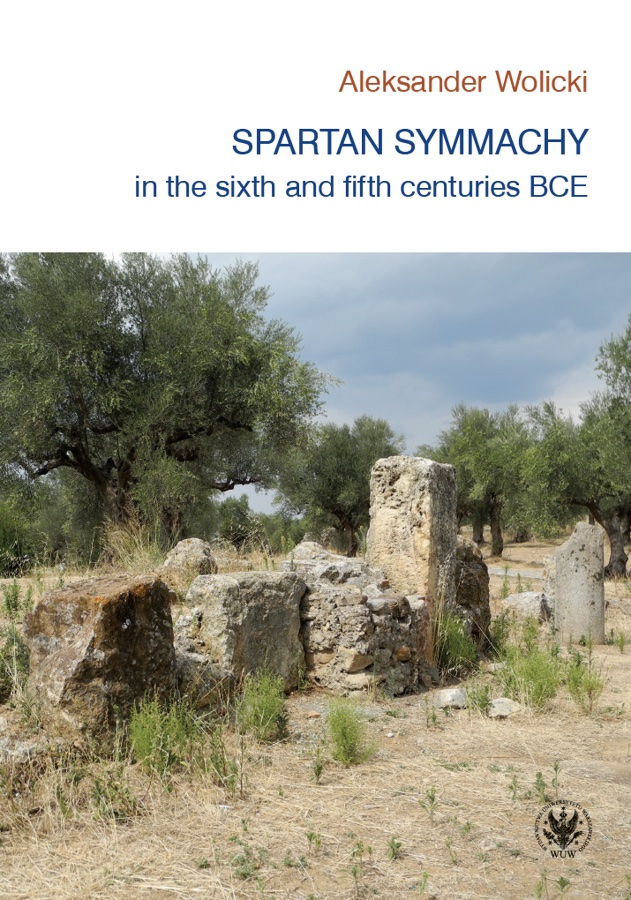
Spartan symmachy in the sixth and fifth centuries BCE
The book contains systematic critique of the traditionalist model’s historiographical assumptions concerning the Spartan alliances in the VI and V century BCE. First chapter is devoted to the critique of the sources. In the second chapter we look at three areas where the original impulse for the creation of a coherent, uniform alliance around Sparta has been sought: Sparta’s helot problem, relations with Argos and finally the alleged Spartan “crusade” against Greek tyrants. In the third chapter the supposed constitution of the Peloponnesian League is tackled. The assumption is that it was shaped in the 450s in reaction to the emergence of the Athenian empire which provoked strong fear.
In the fourth chapter the author attempts to buttress this theory by an analysis of a problem that has to date nearly evaded scholarly attention but which is central to any attempt at understanding the Spartan symmachy, namely the history of the term “the Peloponnesians” and its use. The author traces the development of an originally purely geographic designation into a slogan used from the mid-fifth century onwards as propaganda for the Peloponnesian unity against Athenian aggression while cementing the anti-Athenian alliance around Sparta. The history of the word constitutes a crucial argument in the discussion on the time, place and character of the formation of the Peloponnesian League.
Wydawnictwa Uniwersytetu Warszawskiego: Warszawa 2018
ss. 286
ISBN: 978-83-235-3490-7